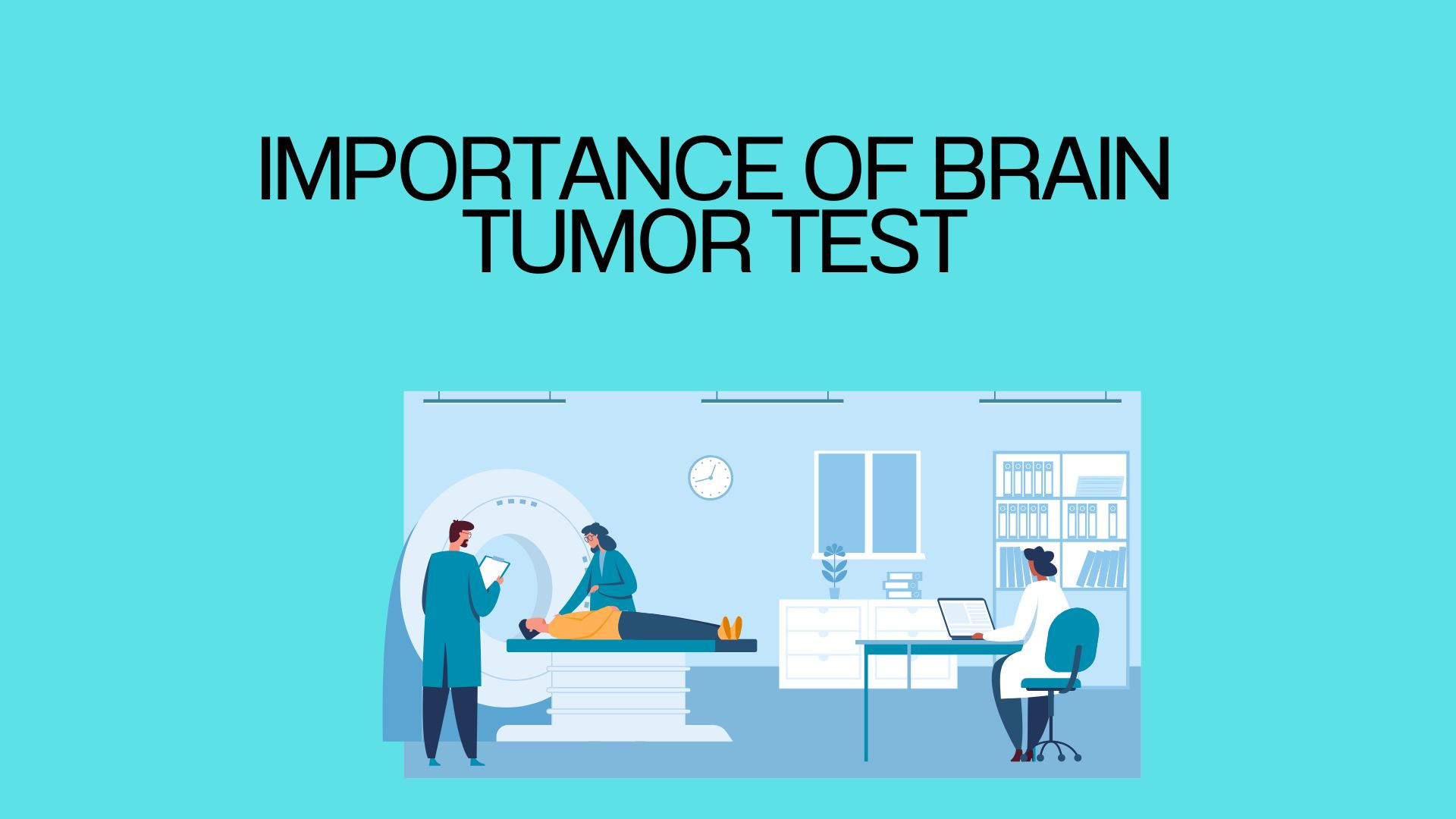If untreated, brain tumors can have a catastrophic impact on a person’s life. Even though it can be terrifying to consider you may have a brain tumor, prompt diagnosis, and treatment are essential for a full recovery.
For this reason, if you have any worrying symptoms, you should never disregard them and get tested for brain tumors. We will discuss the need for a brain tumor test as well as how it might save your life in this blog post.
Understanding the Brain Tumor: Types, Causes, and Symptoms
Complex in nature, brain tumors can take many different forms and sizes. Gliomas, meningiomas, and pituitary tumors are the three most prevalent kinds of brain tumors.
Gliomas can be further divided into astrocytomas, oligodendrogliomas, and ependymomas. Gliomas originate from the supporting cells of the brain. Pituitary tumors grow in the pituitary gland, whereas meningiomas start in the membranes that surround the brain and spinal cord.
Although the exact causes of brain tumors are unknown, several risk factors have been found. These include a family history of brain tumors, exposure to ionizing radiation, and certain genetic conditions like neurofibromatosis and tuberous sclerosis.
Furthermore, a few studies point to a potential connection between smartphone use and brain cancers; nevertheless, further investigation is required to confirm this association. Early detection and treatment of brain tumors depend on the ability to identify their symptoms.
Persistent headaches, seizures, altered vision or hearing, memory issues, trouble speaking or understanding language, and changes in mood or personality are common symptoms. You must speak with a healthcare provider for a more thorough assessment if you encounter any of these symptoms.
To raise awareness and support early detection, it is essential to comprehend the different types, causes, and symptoms of brain tumors.
The Crucial Role of Early Diagnosis in Managing Brain Tumors
Managing brain cancers requires an early diagnosis. Time is of the essence when it comes to malignant malignancies. Early detection and treatment greatly improve the prognosis and chances of a successful course of treatment.
The fact that brain tumors can develop quickly and seriously harm nearby brain tissue is one of the key reasons early identification is crucial. A tumor can cause increasingly severe symptoms and problems the longer it remains undiscovered by interfering with brain functioning.
More treatment choices are also made possible by early diagnosis since certain tumors may be candidates for targeted medicines or surgical procedures that are not feasible at later stages.
Furthermore, patients’ quality of life and overall outcomes can also be enhanced by early diagnosis. It offers the chance for early intervention and the execution of all-encompassing treatment regimens that may involve chemotherapy, radiation therapy, surgery, and supportive therapies.
We want to encourage people to take action if they notice any troubling signs, which is why early diagnosis is so important. Recall that early identification of brain cancers can save lives.
How a Brain Tumor Test Works and Why You Should Consider It
A brain tumor test is a diagnostic process used to ascertain whether a brain tumor is present and what kind of tumor it is. An MRI is the most often utilized diagnostic to diagnose brain tumors (Magnetic Resonance Imaging).
This non-invasive imaging method creates finely detailed images of the brain using radio waves and a strong magnetic field. It makes the location, size, and kind of tumor visible to medical specialists. In certain instances, other examinations like PET or CT scans may also be utilized to gather extra details regarding the tumor.
A brain tumor test is worth taking into consideration because it offers vital information for efficient treatment planning. Healthcare providers can choose the best course of action, which may involve surgery, radiation therapy, chemotherapy, or a combination of treatments, by knowing the tumor’s size, location, and kind.
It also makes it possible to track the tumor’s progression and how it responds to therapy over time.
Furthermore, by verifying or ruling out the existence of a brain tumor, a brain tumor test offers comfort. It can reduce anxiety and make it possible for people to get the right medical attention when necessary.
A brain tumor test’s early identification improves the likelihood of a good prognosis and effective treatment. Always remember that when it comes to your health, it’s better to be cautious than sorry.
Real-Life Stories: Impact of Ignoring Symptoms and Importance of Brain Tumor Test
Stories from real life serve as potent reminders of how crucial it is to identify symptoms and get medical help as soon as possible. These tales highlight the potentially disastrous effects of disregarding symptoms that point to the possibility of a brain tumor.
A young woman reported having chronic headaches and eyesight problems, but she wrote them off as stress-related. Her condition quickly deteriorated months later, and a massive, malignant brain tumor was identified as the cause.
The tumor grew to a size that prevented its whole excision as a result of the delay in seeking medical attention. Her quality of life was severely compromised and her chances of long-term survival were reduced, even with vigorous therapy.
Another poignant story is about a middle-aged man who began experiencing memory problems and personality changes. He attributed these changes to age instead of seeing a doctor. The tumor had progressed to a more advanced stage when he sought medical guidance, which limited and decreased the effectiveness of available treatments.
These true tales highlight the dangers of disregarding symptoms and the necessity of a brain tumor test for early detection. Early detection can significantly improve the likelihood of a successful outcome and avert needless suffering.
You can save your own life if you take an active role in your health and don’t ignore any troubling signs.
